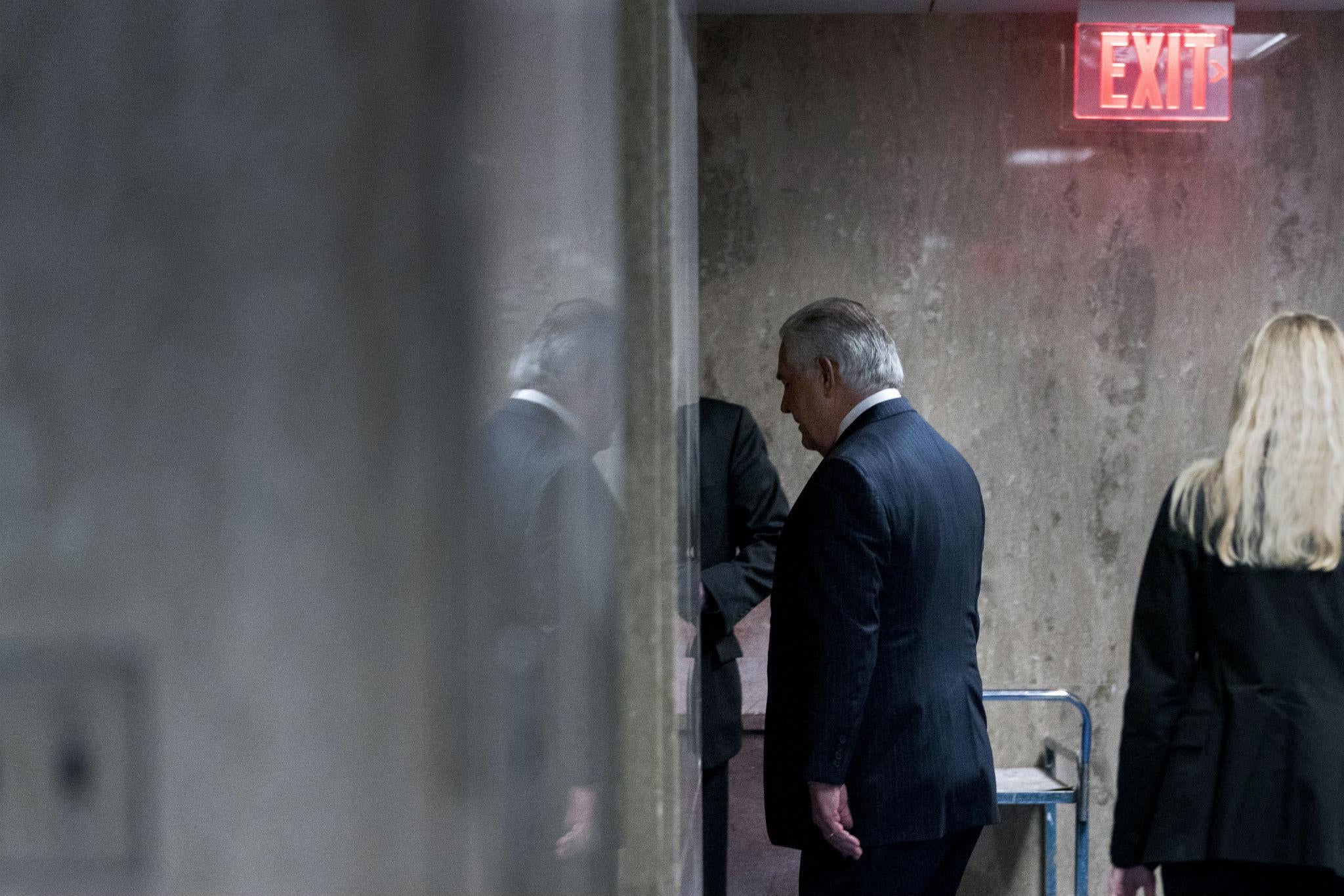Trump’s sacking of Tillerson forces world to adjust to new reality of US foreign policy
The President has a clearer path to act on his desire to abandon the Iran nuclear deal

Your support helps us to tell the story
From reproductive rights to climate change to Big Tech, The Independent is on the ground when the story is developing. Whether it's investigating the financials of Elon Musk's pro-Trump PAC or producing our latest documentary, 'The A Word', which shines a light on the American women fighting for reproductive rights, we know how important it is to parse out the facts from the messaging.
At such a critical moment in US history, we need reporters on the ground. Your donation allows us to keep sending journalists to speak to both sides of the story.
The Independent is trusted by Americans across the entire political spectrum. And unlike many other quality news outlets, we choose not to lock Americans out of our reporting and analysis with paywalls. We believe quality journalism should be available to everyone, paid for by those who can afford it.
Your support makes all the difference.A day after Donald Trump’s sacking of Secretary of State Rex Tillerson, the rest of the world gets ready to adjust to US foreign policy with an ardent hawk at the helm.
With Mr Tillerson out, the US President has a clearer path to act on his oft-expressed desire to abandon the Iran nuclear deal, which his new nominee for Secretary of State, Mike Pompeo, has called “disastrous”.
Iran has played down what could happen if the current CIA Director becomes the US’s top diplomat, saying the change was an internal US matter.
“These changes and developments and firings in the Trump government are not new,” Foreign Ministry spokesman Bahram Qassemi said when asked at a news conference about the impact of Mr Pompeo’s appointment on the nuclear deal, according to state media.
“We have witnessed similar developments and this is their internal issue,” he said. “What is important for the Islamic Republic is America’s policy in global affairs and their interaction with us and we will adopt our own positions.”
Mr Qassemi added that the US could not be trusted.
“In actions and by experience it’s been seen that the policies and approach of America cannot be trusted very much,” Mr Qassemi said, according to state media. “This country is not very dependable.”
As part of the deal negotiated during the Obama administration, Iran agreed to restrict its nuclear programme for at least 10 years in exchange for the loosening of economic sanctions. Britain, France, Germany, Russia, China and the EU all signed the accord, along with the US.
As Mr Trump has panned the 2015 agreement as “the worst deal ever”, other world leaders, including UK Foreign Secretary Boris Johnson, have said it is working and that they intend to protect it. Mr Trump issued an ultimatum to European allies in January, giving them 120 days to “fix the terrible flaws of the Iran nuclear deal” or he would pull the US out.
While Washington was mostly stunned by the news of Mr Trump’s dismissal of Mr Tillerson, Brussels was surprising zen about “Rexit”, Politico reported.
One European diplomat said transatlantic relations “have already reached such a low level that they can hardly go any lower.”
The US’s relationship with the UK also hangs in the balance. Mr Tillerson was ousted a day after saying “we have full confidence” in the UK’s assessment that Russia was likely responsible for a nerve agent attack against a former Russian spy in Salisbury last week. Mr Tillerson’s comments went further than the White House’s initial response, which stopped short of pinning blame on Moscow.
Then, a day after Mr Tillerson’s dismissal, British Prime Minister Theresa May expelled 23 Russian diplomats and said the UK was leaving the US in no doubt about the seriousness of the poisoning. There was no immediate response from the White House or State Department.
“Mr Tillerson did indeed give robust comments after this incident took place, and I am sure we will be working with his replacement to ensure that America is one of those allies who stand alongside us,” Ms May told Parliament.
When Mr Trump spoke about Mr Tillerson just moments after firing him, the Iran deal was the only specific point of contention the President mentioned after he told reporters that he and the former Secretary of State “disagreed on things”.
“When you look at the Iran deal, I think it’s terrible. I guess he thought it was OK,” Mr Trump said. “I wanted to either break it or do something and he felt a little bit differently, so we were not really thinking the same.”
Mr Pompeo, meanwhile, has expressed more hawkish opinions on Iran and the nuclear accord than Mr Tillerson.
But those views could make it difficult for Mr Pompeo to receive confirmation in the US Senate to become Secretary of State.
Republican Senator Rand Paul has already announced that he will oppose the nomination of Mr Pompeo as well as Mr Trump’s pick to lead the CIA, the spy agency’s current deputy director Gina Haspel.
“What I liked about candidate Trump was his strong condemnation of the Iraq War,” Mr Paul wrote on Twitter. “I believe President Trump has done a great job, and I continue to support him, but I cannot endorse his nomination of people who loved the Iraq War so much that they want an Iran War next.”
Join our commenting forum
Join thought-provoking conversations, follow other Independent readers and see their replies
Comments